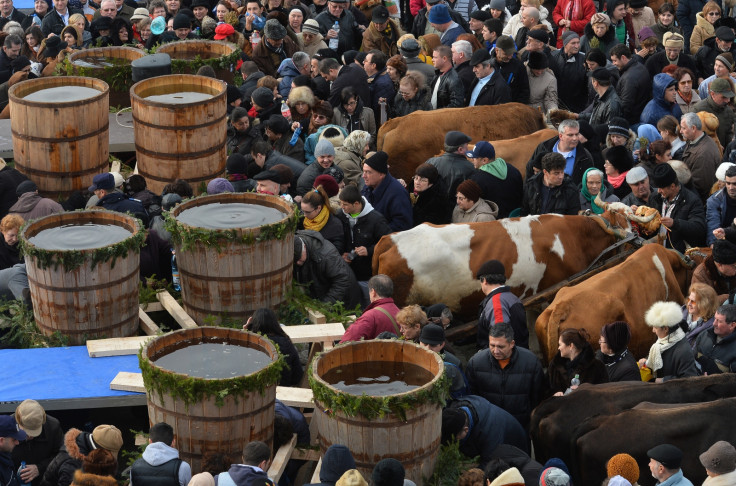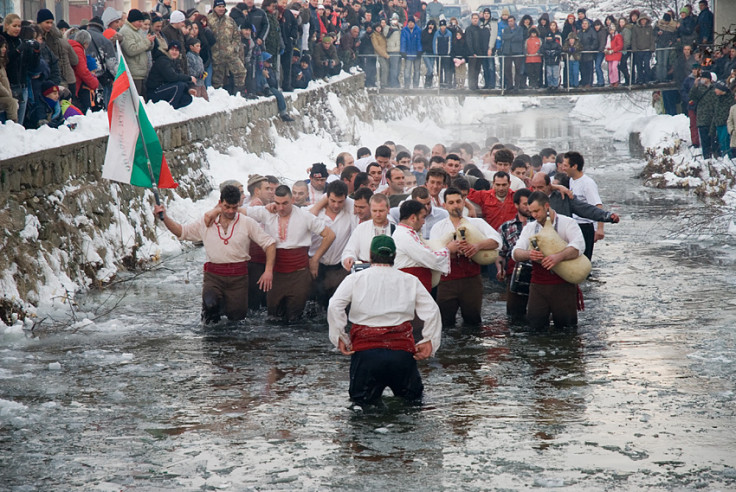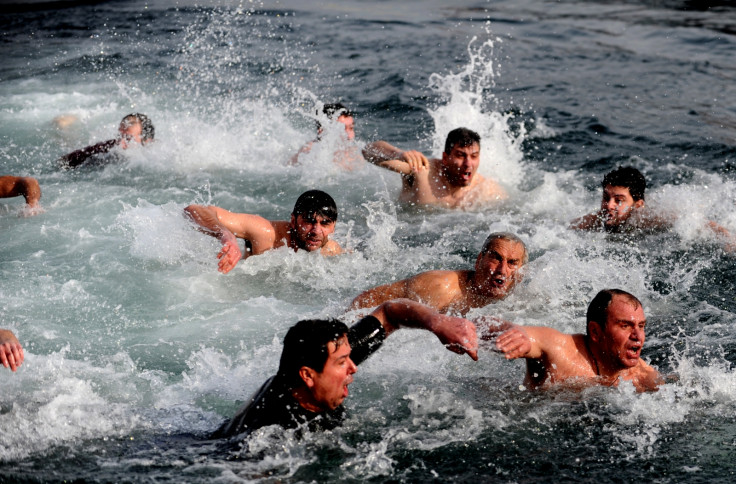Epiphany 2015: What is 'Three Kings Day' and how is it celebrated around the world?

While for most the festive season ends after the turn of the New Year, thousands around the world celebrate another holiday – the Epiphany, otherwise known as Three Kings Day, the Feast of the Epiphany, or Twelfth Day, on 6 January.
The holiday falls on the twelfth day after Christmas, signalling the conclusion of the festive season. Although various cultural and Christian denominations practice different customs, the Feast of the Epiphany is a Christian celebration of the revelation of the birth of Jesus to the wider world.
In Western Christianity, the feast also commemorates the visit of the Magi - the wise men - to the "Christ child" and therefore Jesus's physical manifestation to the Gentiles.
Eastern Christians celebrate the baptism of Jesus in the Jordan River, as reflected in the focus on water in several customs. Other communities commemorate the story of Jesus turning water into wine.
Although the traditional date for the feast is 6 January, celebrations since 1970 in various countries have been held on the Sunday after 1 January.
IBTimes UK looks at how the day is celebrated around the world.
Bulgaria
Known as Bogoyavlenie, meaning "manifestation of God", one celebratory custom involves a priest throwing a wooden cross into the sea, a river, or a lake. Young men race to retrieve it and as the waters are close to freezing in early January, this is considered an honourable act. It is believed that the first to reach the cross will have good health.
In the central town of Kalofer, a traditional dance called a horo is carried out in the freezing waters of the Tunddzha river, before the cross is thrown.

Spain
Various Spanish towns arrange colourful parades, the oldest of which has been held in Alcoy, Alicante since 1885. Sweet wine, fruit, and sweets are left out for the Kings and until recently, children received presents on the Epiphany, rather than on Christmas.
Romania
In south-eastern Romania, winter horse races are held after religious services. The competitors and their horses are blessed with Epiphany holy water sprinkled from branches by a priest. As in other Orthodox heritage countries, water rites also pay a significant part in celebrations. According to Romanian folklore, if a girl falls into water or slips on ice, she will marry before the year ends.
Brazil
The day is called Dia dos Reis – the Day of Kings – commemorating the Magi to confirm Jesus as the son of God. The celebration begins the evening before on the night of 5 January, known as the Night of Kings or Twelfth Night – with music, regional dishes and sweets.

France
Two types of cakes are shared on the Epiphany. In northern France and Belgium, the galette des Rois is eaten – a round and flat pastry filled with fruit. In the south, a crown-shaped brioche called a gateau des Rois is eaten. Both types contain a small charm – normally a small figurine – called a fève (bean in French).
Philippines
On the day, Filipino children leave their shoes outside so that the Kings will leave behind small presents, such as sweets or money. Some communities practice the tradition of Tatlóng Harì, where three men or boys ride around on horseback and distribute sweets or small gifts to children in the area.
United States
In the state of Louisiana, the Epiphany marks the start of the Carnival season, during which it is customary to bake traditional King Cakes which are round, filled with cinnamon and decorated in carnival-coloured sanding sugar. Similar traditions and celebrations are held along the Catholic coasts of Mississippi, Florida and Alabama.
Russia
Celebrated in Russia on 19 January, the Epiphany marks the baptism of Jesus in the Orthodox Church. The Russian Church conducts the rite of the Great Blessing of the Waters, also known as "the Great Sanctification of the Water" on that day or the evening before
Historical records indicate that the blessing of the waters events took place at the courts of Moscow Czars since no later than 1525.
© Copyright IBTimes 2025. All rights reserved.





















